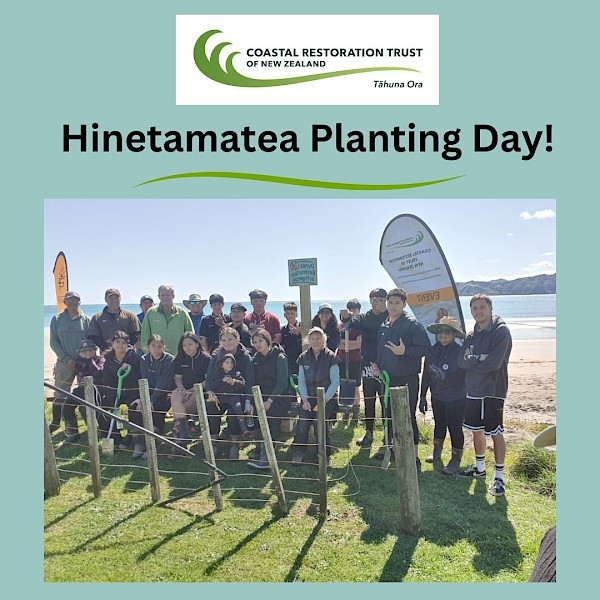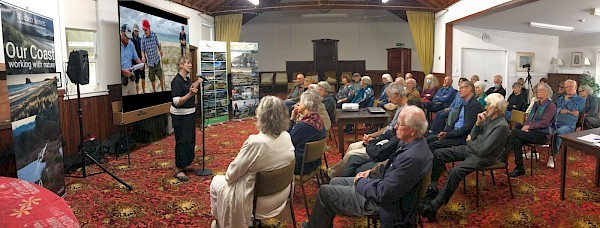 The Pīngao & Toheroa Award is not given out annually. It is to celebrate the exceptional contributions of an individual to coastal restoration only when someone of very high calibre comes to our attention. Recipients of this award automatically become honorary members of the Trust.
The Pīngao & Toheroa Award is not given out annually. It is to celebrate the exceptional contributions of an individual to coastal restoration only when someone of very high calibre comes to our attention. Recipients of this award automatically become honorary members of the Trust.
This year however, the P&T Award went to a couple for the first time. Graham and Lyn Pearson compliment each other so well, and do such excellent work as a team, that they qualified for this honour together.
Graham and Lyn have been the heartbeat of the Whanganui community for years, and attended CRT conferences since 2011.
It is through their efforts that the Castlecliff Coast Care Group has gone from strength to strength. They work with university students, both local and international, to help with their research. Young school kids get invaluable education through planting days with the group, and each patch has a signboard to honour the class that planted it.
Graham and Lyn continue to take on wattle and replant at their own pace. They arrange community driftwood sculpture competitions and will always be there to present evidence based arguments if they don’t agree with proposals for Castlecliff.
They have always had enlightening and engaging presentations in the regional roundups at conference, which focus on a learning point for the year.
Their immense achievements in their community and coastal area makes Graham and Lyn the perfect double recipients of the Pīngao and Toheroa Award, and the Trust was thrilled to present them with the beautiful trophy that was designed and carved by James te Tuhi.
First image: Previous P&T recipient Jason Roberts, presenting Graham and Lyn Pearson with the trophy.
Second image: CRT Chair Laura Shaft, Lyn Pearson, Jason Roberts, Graham Pearson.
Photo credit to Simon Hoyle, Southlight Studios.






